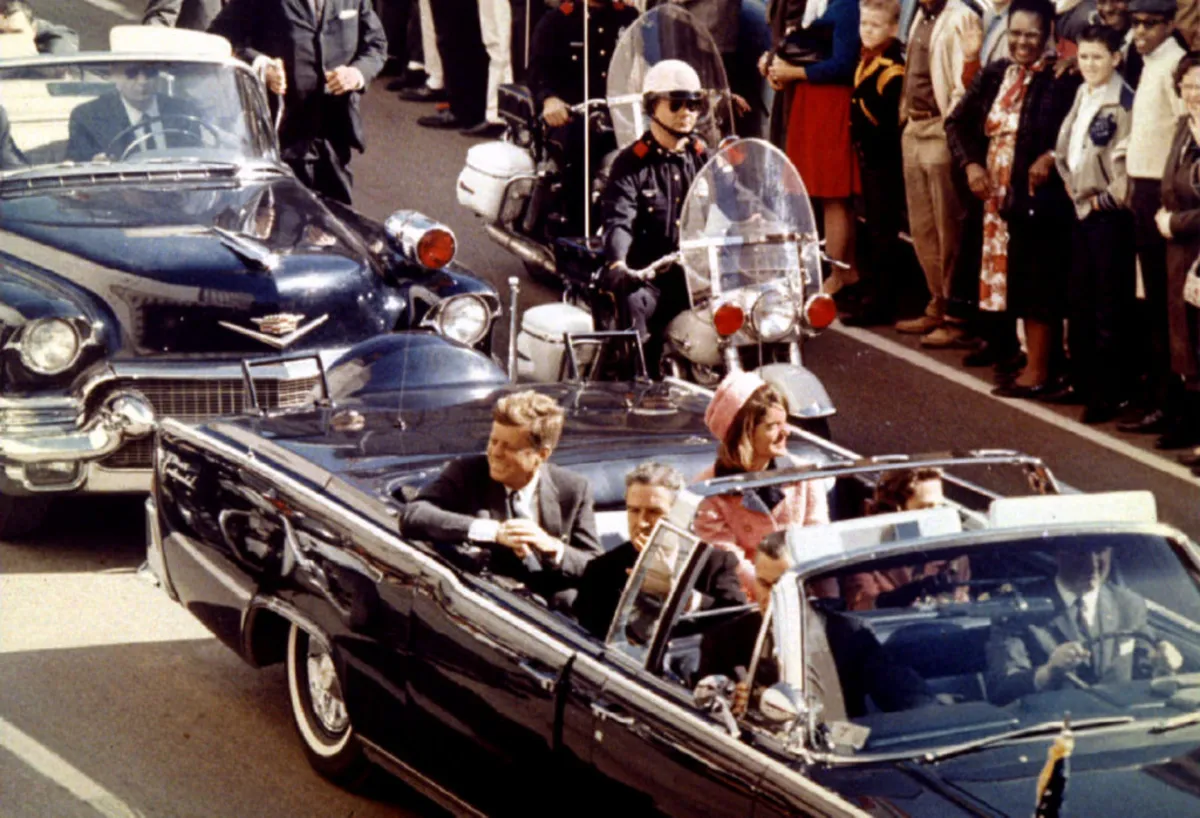
DALLAS (AP) — In a significant move that underscores his commitment to transparency, President Donald Trump has announced the release of files related to the 1963 assassination of President John F. Kennedy. Scheduled for Tuesday, these documents will be made available without any redactions, fulfilling a promise Trump made during his campaign. Speaking to reporters on Monday, Trump indicated that his administration would release approximately 80,000 files, although it remains unclear how many of these are new, as millions of pages of related records have already been made public.
While at the John F. Kennedy Center for the Performing Arts in Washington, Trump remarked on the extensive amount of documentation, stating, “We have a tremendous amount of paper. You’ve got a lot of reading.” He expressed confidence that the files would not be redacted, insisting, “Just don’t redact. You can’t redact.” This announcement has reignited public interest in the details surrounding JFK's assassination and the broader implications of the events that transpired on that fateful day.
On November 22, 1963, President Kennedy, accompanied by First Lady Jacqueline Kennedy, arrived in Dallas amidst a clear sky and enthusiastic crowds. The visit was part of a political tour aimed at mending fences ahead of his reelection campaign. Unfortunately, as their motorcade progressed through downtown Dallas, shots were fired from the Texas School Book Depository, resulting in the tragic assassination of JFK. The police quickly apprehended Lee Harvey Oswald, a 24-year-old who had taken position as a sniper on the sixth floor of the building. Just two days later, Oswald was fatally shot by nightclub owner Jack Ruby during a jail transfer.
A year after the assassination, the Warren Commission, established by President Lyndon B. Johnson, concluded that Oswald acted alone and found no evidence of a conspiracy. However, this conclusion did little to quell the myriad conspiracy theories that have emerged over the decades, fueling public curiosity and skepticism.
Shortly after taking office, President Trump issued an order to release the remaining classified files related to JFK's assassination. This initiative aimed not only to unveil the records concerning JFK but also to declassify federal documents related to the 1968 assassinations of Sen. Robert F. Kennedy and Rev. Martin Luther King Jr.. Upon signing the order, Trump handed the pen to an aide, directing that it be given to Robert F. Kennedy Jr., the Trump administration's top health official and nephew of John F. Kennedy. Kennedy Jr. has publicly expressed doubts about the narrative that a lone gunman was solely responsible for his uncle’s assassination.
In the early 1990s, the federal government mandated that all documents related to the assassination be consolidated in a single collection held by the National Archives and Records Administration. This collection was required to be opened by 2017, unless exemptions were designated by the president. Although some documents were released during Trump’s first term, he withheld others citing concerns over national security. Despite ongoing releases during President Joe Biden’s administration, numerous documents remain classified.
According to the National Archives, the majority of the collection, which comprises over 6 million pages of records, photographs, motion pictures, sound recordings, and artifacts, has already been made public. However, researchers estimate that around 3,000 files have not been fully released. Recently, the FBI disclosed the discovery of approximately 2,400 new records related to the assassination, which are currently being processed for transfer to the National Archives for declassification.
Some of the documents that have previously been released provide critical insights into the intelligence operations of the era. These include CIA cables and memos detailing Oswald’s visits to the Soviet and Cuban embassies in Mexico City just weeks before the assassination. Oswald, a former Marine who had defected to the Soviet Union, had attempted to contact the Soviet Embassy to request a visa. Additionally, he sought a travel visa to Cuba, suggesting a complex web of international connections.
One notable CIA memo, dated the day after JFK's assassination, reveals that Oswald was believed to have communicated with a KGB officer while at the Soviet Embassy. These revelations have significantly contributed to the understanding of the Cold War context surrounding the assassination, further highlighting the layers of complexity in this historical event.